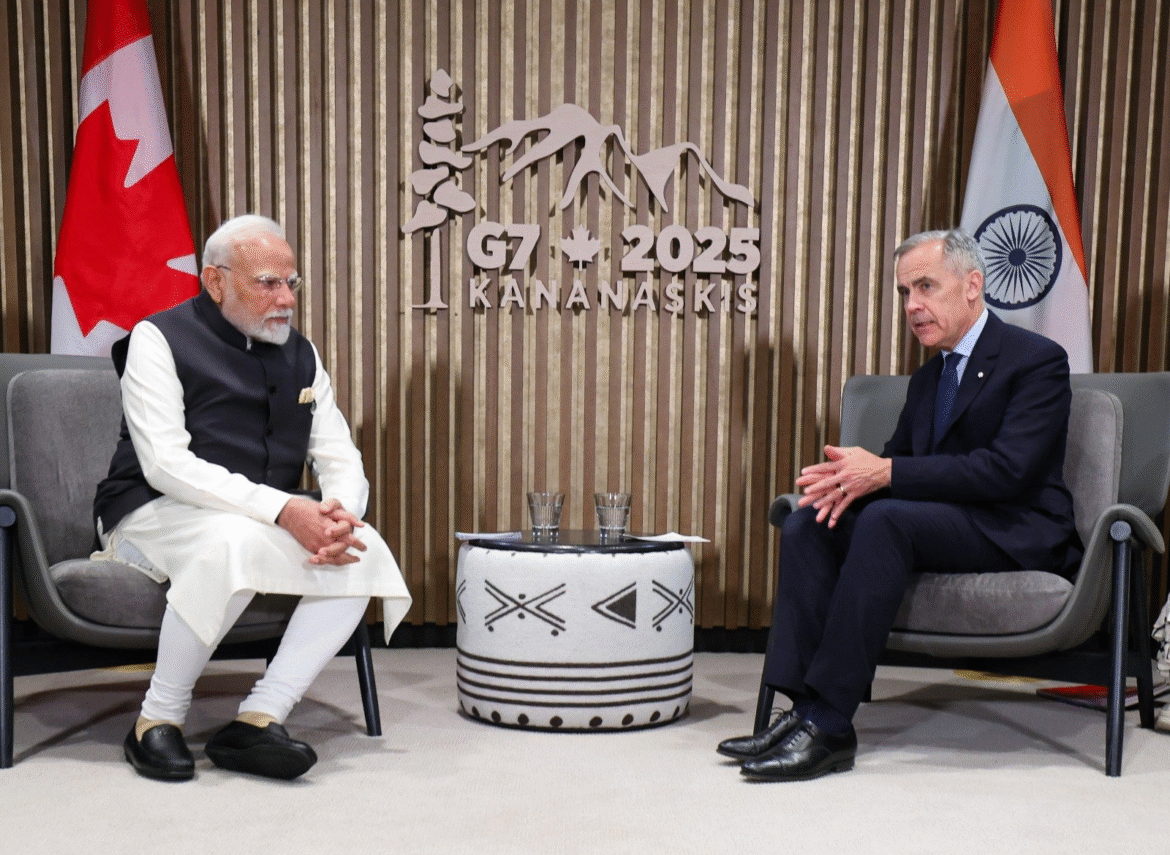AI Generated Summary
- In a significant thaw in diplomatic relations, India and Canada have announced the restoration of high commissioners in each other’s capitals and a renewed commitment to bilateral cooperation across critical sectors, following a meeting between Prime Minister Narendra Modi and Canadian Prime Minister Mark Carney.
- One of the key outcomes of the meeting was the decision to revive negotiations on the Early Progress Trade Agreement (EPTA), a precursor to a full-fledged Comprehensive Economic Partnership Agreement (CEPA).
- “Carney and Modi reaffirmed the importance of Canada-India ties, based upon mutual respect, the rule of law, and a commitment to the principle of sovereignty and territorial integrity,” it noted.
In a significant thaw in diplomatic relations, India and Canada have announced the restoration of high commissioners in each other’s capitals and a renewed commitment to bilateral cooperation across critical sectors, following a meeting between Prime Minister Narendra Modi and Canadian Prime Minister Mark Carney.
The leaders met on the sidelines of the G7 Summit in Canada, marking their first in-person dialogue since Carney took office. The meeting produced a clear roadmap for repairing ties strained by months of tension and signaled a shared intent to rebuild trust and momentum.
“PM Carney and I look forward to working closely to add momentum to the India-Canada friendship,” Modi posted on social media platform X, highlighting potential in areas such as trade, energy, space, clean technology, and critical minerals.
A statement released by India’s Ministry of External Affairs (MEA) said both countries agreed on “calibrated and constructive steps” to stabilize their relationship, starting with the return of high commissioners. The move is seen as a symbolic yet crucial first step toward resuming normal diplomatic functions and services for citizens and businesses alike.
Foreign Secretary Vikram Misri, briefing on the outcome of the talks, said, “Other diplomatic steps will follow in due course.” These steps include restarting senior-level ministerial dialogues and working-group discussions, with a focus on sectors such as trade, clean energy, digital infrastructure, artificial intelligence, and food security.
Canada echoed the sentiment in its official statement, emphasizing the decision to designate new high commissioners and the broader aim to resume regular services and engagement. “Carney and Modi reaffirmed the importance of Canada-India ties, based upon mutual respect, the rule of law, and a commitment to the principle of sovereignty and territorial integrity,” it noted.
One of the key outcomes of the meeting was the decision to revive negotiations on the Early Progress Trade Agreement (EPTA), a precursor to a full-fledged Comprehensive Economic Partnership Agreement (CEPA). These talks had been stalled amid a diplomatic standoff that reached a peak in October last year when both countries expelled diplomats after Canada alleged Indian involvement in the killing of Khalistani activist Hardeep Singh Nijjar—an accusation New Delhi strongly rejected.
Looking ahead, the two nations will also resume people-to-people and connectivity initiatives and explore partnerships in critical supply chains. Misri said the engagements would span digital and physical infrastructure projects, highlighting a renewed bilateral focus on innovation, sustainability, and resilience.
The meeting between Modi and Carney, described by Indian officials as “a positive step towards reviving relations,” sets the tone for a more stable and cooperative future between the two democracies.




